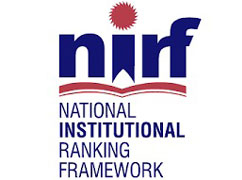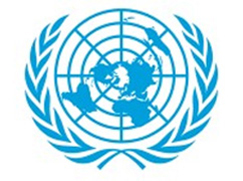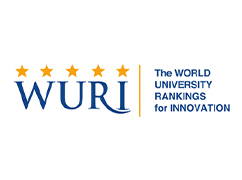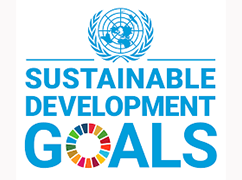
Drawing inspiration from its Vision, Mission and core values, CHRIST aims to promote the Atma Nirbhar Bharat Abhiyan of the country to create a self-reliant and sustainable atmosphere, nurturing social responsibility among staff and students through Centre for Social Action (CSA), Parivarthana, Green audit Green army and sustainability cells.
CHRIST (Deemed to be University) strongly believes that education is for the development of persons and for life. It strives to integrate the sense of responsibility for the development of fellow human beings in all its three thrust areas, namely, teaching-learning, research and service. The University strives to achieve this aim through curricular, co curricular, extracurricular activities for students-including those that connect to real-life situations, staff training programmes and social projects, supported through its departments, centres and offices
‘Building Sustainable Development Ethos in Students through Community Engagement” is the distinctiveness highlight of the institution. CHRIST has developed distinctiveness in building sustainable development ethos in students through:
Centre for Social Action (CSA) facilitates Sustainable Changes by contributing to Social Sensitisation Programmes through student’s volunteers and undertakes Community Development Projects for the poor and marginalised. CSA Create a community of empathetic students who can work proactively for the benefit of society
Centre for Social Action (CSA) facilitates Sustainable Changes by contributing to Social Sensitisation Programmes through student’s volunteers and undertakes Community Development Projects for the poor and marginalised. CSA Create a community of empathetic students who can work proactively for the benefit of society
Service learning is a pedagogical practise that engages students in community service through disciplinary curriculum. In 2014, the University incorporated service learning into the undergraduate curriculum. The University has established a Centre for Service Learning to ensure benchmarking practises and curriculum, conduct research, and promote advocacy in Service Learning. Some of the community impacts created by service learning initiatives are listed below.40 Children trained through Skill Development program in Community (Sneha Gram).
Beyond department and discipline-specific Service Learning, many University-level platforms and initiatives are being developed for direct community engagement by students from across the University. The following are some of the university students’ volunteer activities: child sponsorship, educational programmes, awareness sessions on topics such as substance abuse, waste management, women empowerment, sustainable menstruation, and so on.
Engineering students participating in this initiative take on rural problems and apply their subject knowledge to find and implement solutions to social issues identified by them. These issues are studied as research or social projects over the course of a semester.
Link to the Initiative: https://e-sail-web-christuniversity.web.app/#index
Parivarthana, the University’s Recycling Initiative, has evolved as a model for all higher educational institutions seeking to protect the environment through waste management. The Parivarthana Unit manages over 1000 kg of waste per day, with 20% wet waste and 80% dry waste. This unit also recycles 3-4 lakh litres of water per day, which is then used for gardening and vegetation.
The Team Parivarthana-student volunteers, Recycling Unit staff, and Student Council raise waste management awareness and instil best waste management practises such as reduce, reuse, and recycle among University students and staff. Paper recycling is carried out in order to produce recycled paper and stationery with the assistance of MBA students for design, marketing, and sales. Food waste is used to produce cooking gas, which produces approximately 24 kg of gas per day. The Recycling Unit is managed by women from the surrounding communities, providing them with a source of income.
Emergency response an initiative to involve students and faculty in responding to both natural and man-made disasters and situations. Students have been involved in relief work in many natural disasters.
During the pandemic, students were involved in the following COVID-19 relief work
Address
Dharmaram College Post, Hosur Road, Bengaluru – 560029, Karnataka, India
Telephone
+91 804012 9100 / 9600
Send us a Fax
40129000
Mail Us At
mail@christuniversity.in







